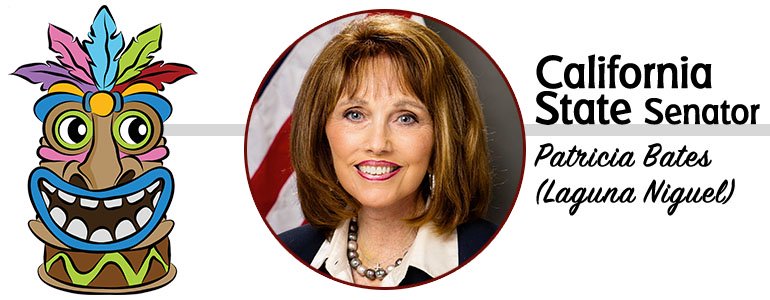Senate Health Committee blocks bill to end referral payments for recovering addicts


The Senate Health Committee today blocked Senate Bill 486 by Senator Patricia Bates (R-Laguna Niguel) that would have prohibited commercially-operated substance abuse recovery residences (also known as sober living homes) from engaging in patient brokering.
“It’s sad that today’s decision means that patient brokering for sober living homes will continue for the foreseeable future,” said Bates. “While passing any kind of state legislation regulating sober living homes is challenging given potential conflicts with federal law, we must continue to do what we can to stop fraud and hold dishonest commercial operators accountable. I will continue to work with stakeholders to try to address concerns.”
SB 486 would have added commercially-operated recovery residences to the list of entities that cannot give or receive anything of value for the referral of an individual seeking alcoholism or drug abuse recovery and treatment services. It also adds a $50,000 penalty for violations. The bill was designed to prevent insurance fraud and abusive practices resulting from provider decisions that are based on self-interest rather than matching people with appropriate treatment.
Senator Bates, a former social worker, authored SB 486 after the Southern California News Group’s (SCNG) published its investigation on the “Rehab Riviera” that found unscrupulous rehab operators rushing in to take advantage of mandatory mental health treatment coverage required by the Affordable Care Act. The SCNG found that the state’s hands-off approach to regulating the industry makes it easy for almost anyone to open a treatment center and charge insurance companies hundreds of thousands of dollars per client.
SB 486 would have built upon SB 1228 (Lara) that Governor Brown signed in 2018. SB 1228 prohibits the practice of patient brokering for licensed alcoholism or drug abuse recovery or treatment facilities (RTF), owners/operators/shareholders of a RTF, and any person that works in an RTF. But the state law does not apply to commercially-operated recovery residences due to concerns that it would conflict with the federal Americans with Disabilities Act. The Act protects people who are recovering from substance abuse from laws judged “discriminatory” because they are considered legally “disabled.”
In November 2019, Senator Bates and Senator John Moorlach (R-Costa Mesa) sent a letter to U.S. Attorney General William Barr and U.S. Housing and Urban Development Secretary Ben Carson asking for their assistance to clarify existing federal laws on this issue. Clarification could allow the state and local governments to address issues related to addiction treatment facilities while reducing the possibility of lengthy and expensive litigation.
This article was released by the Office of Senator Patricia Bates.
 Pathways Drug Rehabilitation Luxury Addiction Treatment & Detox Center
Pathways Drug Rehabilitation Luxury Addiction Treatment & Detox Center


